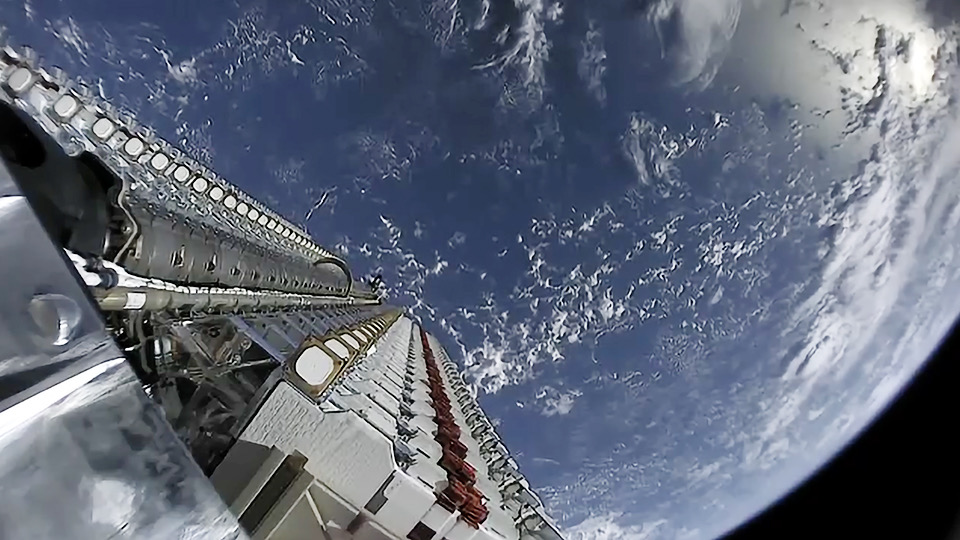
SpaceX’s huge internet-satellite constellation appears to be getting off to a good start.
The first 60 Starlink satellites have notched a number of important milestones since their launch to low-Earth orbit last Thursday (May 23), company representatives said.
“At this point, all 60 satellites have deployed their solar arrays successfully, generated positive power and communicated with our ground stations,” a SpaceX spokesperson said in an emailed update today (May 31). “Most are already using their onboard propulsion system to reach their operational altitude and have made initial contact using broadband phased-array antennas.”
Related: SpaceX’s 1st Starlink Megaconstellation Launch in Photos!
This Starlink batch is the vanguard of an internet-providing constellation that will eventually consist of thousands of satellites, if all goes according to plan. Indeed, the Federal Communications Commission has given SpaceX permission to launch nearly 12,000 Starlink craft.
The five dozen recently launched spacecraft deployed at an altitude of 273 miles (440 kilometers) and are headed toward an operational altitude of 342 miles (550 km). But they won’t get up there for another few weeks, SpaceX representatives said.
The satellites’ visibility in the sky — a source of consternation for some astronomers, both professional and amateur — will decrease considerably as they rise, SpaceX representatives said. The satellites’ solar arrays will also move behind the craft as they point their antennas toward Earth, contributing to this fadeout, SpaceX representatives added.
Company founder and CEO Elon Musk has stressed that this first Starlink batch, while consisting of operational satellites, is something of a test run, and it wouldn’t be surprising if some issues cropped up. Indeed, the company is prepared to bring some spacecraft down if need be.
“SpaceX continues to monitor the constellation for any satellites that may need to be safely deorbited,” company representatives wrote in today’s update. “All the satellites have maneuvering capability and are programmed to avoid each other and other objects in orbit by a wide margin.”
SpaceX isn’t the only company that aims to provide affordable internet to people around the world via a big constellation in low-Earth orbit. For example, OneWeb, Telesat and Amazon also have similar plans.





























